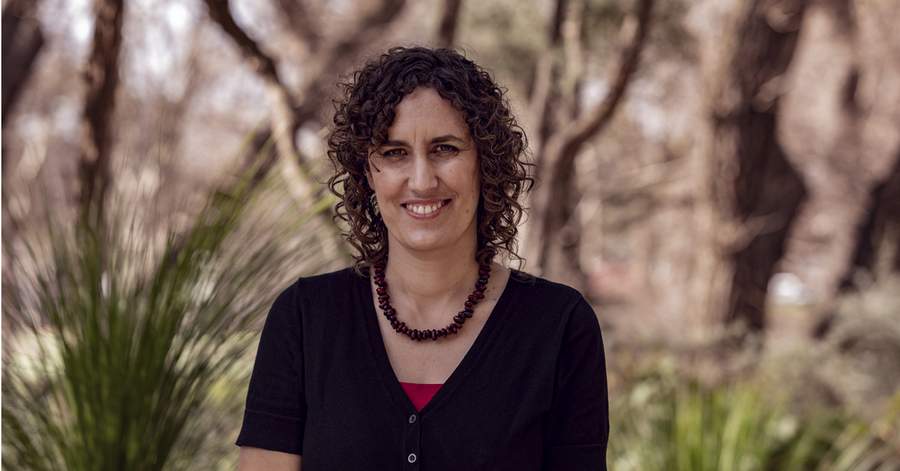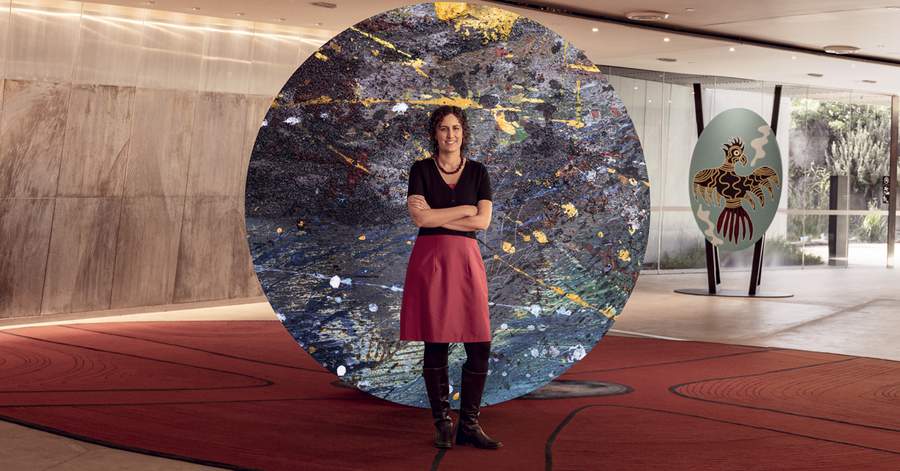Deeper Read: Jadah Pleiter On The New Deadly & Proud Campaign
WORDS DANIEL JAMES
As we continue down the path of truth and then Treaty in this place we now know as Victoria, it is critical to have an open dialogue not only about the true history of this place, but also about the path toward Treaty.
The painful stories to be told, the uncomfortable realities to be heard.
Victoria itself is a tapestry of interwoven First Nations cultures, in which mob from all over the country come to learn and teach each other about our respective cultures. The Treaty process must be generous enough to hear the voices of people that have come to love this land as much as we do.
Here, Jadah Pleiter, a Palyku woman from north-west Australia, tells me what Treaty and truth-telling means for her. The importance of giving voice to people that traditionally haven’t had a voice. To allow people to talk about their grievances as well as their aspirations.
Her story and the stories of other First Nations people can be found as part of the Deadly & Proud campaign launched in partnership with the First Peoples’ Assembly of Victoria and the State Government. As a very interesting aside, my conversation with Jadah also covers the critical work she’s been involved with in ensuring personal protective equipment (PPE) reached Aboriginal communities in the early days of the pandemic.
It is a reminder of the amazing job that the Aboriginal community has done in ensuring not one of our mob died from COVID.
Here and now, the importance of preserving the stories of our ancestors is being matched by the real work of people like Jadah, to ensure the stories of this generation are passed on to generations to come.

Photo courtesy of Deadly & Proud
Daniel James: How did you become involved in this initiative?
Jadah Pleiter: I was approached to be part of it about a year ago now. I’ve been well aware of the Deadly Questions campaign and wasn’t sure at first whether it was appropriate for me to be part of it since this is not my Country here in Victoria, but I’ve lived here for about 25 years now.
You’re almost a Victorian.
Nearly a local. But I’ve been very blessed to live on this land here and be part of the community here and thought it was quite a privilege, actually, to be asked to be part of it.
I’ll play the clip from the Deadly & Proud website and see what you’ve got to say for yourself.
Around the millennium, there was quite a bit of movement in terms of awareness of Aboriginal political aspirations, social aspirations. And after the apology, a lot of that national debate seemed to sort of simmer down a lot.
I felt like it kind of ground to a halt. And I feel like Treaty will reignite that.
I really want our young people to just be free. To be free to determine their future, to be able to pursue their aspirations and have that in-built belief that they can.
I want them to know their value. I want them to know just how deadly they are. They really are. That they’ve just got so much in them. They’ve got so much amazing heritage and these qualities of innovation and creativity that are second to none. And I want them to be able to feel celebrated and to celebrate themselves. And go out and be mooditj. Be deadly.
It’s a pretty powerful message there, Jadah. A very simple one, but one that strongly resonates and should be heard by many. I wanted to ask you about your recollections. You’re right – around the time of the turn of this century, but also around the time of an apology from Kevin Rudd to the Stolen Generations, there was a great deal of momentum. But you feel that that momentum fell away pretty quickly and Treaty’s an opportunity to pick that back up.
Absolutely. Sometimes our news can be a bit focused on the flavour of the month. And we were the flavour for a little bit and it all led up to that apology, which was fantastic and such a momentous occasion, but after that, there was a lot of action on the ground, for sure – we’ve got the Reconciliation Action Plans and that sort of thing happening – but in terms of the national debate in the political arena, [I] just felt there wasn’t a lot of movement with that. And in a way, I think it does have to come to something that’s a lot more localised.
The Treaty process that Victoria is undertaking is a really fantastic process because it really is about collectively entering into discussion around what does this mean for us here in this state, for this people on this land. What’s our collective history? What does Treaty mean for us together? What’s the pathway for that?
Even being able to have a dialogue about what that pathway looks like, rather than just being told, “This is the pathway, now follow it,” is really valuable. Being able to give a voice to people that haven’t had a voice. To be able to dialogue about grievances as well as aspirations together... I think Treaty creates the space, the ground to be able to sit down and have those tough conversations.
I think you’re absolutely right. I think one of the things about the Treaty process is actually the discovery or the re-discovery of some of our own heritage and some of our connections to land and time and place and people. And so the Treaty process [is] just not a formal process of getting to a path towards Treaty. By having those discussions by themselves, there’s healing in that, isn’t there?
Absolutely. I think that process itself and that dialogue being heard is in itself very healing and affirming. I spoke in that little clip about wanting our young people to feel celebrated, to be affirmed for who they are, to be acknowledged. I think that’s just a very human need that we all share, that desire to be affirmed and to have a voice and have our identity affirmed. I think unfortunately, we need something like this to create a space for that to happen.
I think it did need to move from a national focus to a more localised focus because I feel like Victorian people might know about Aboriginal culture in a broad sense, but what about local culture? What about local language, the local traditions and the histories of this place? Those are the things that help you to identify with and feel like this is our history, not just Aboriginal history – it’s our history. It’s Victorian history. It’s my history of my place where I live now that was here before I was here, before my grandmother was here. It then becomes a shared story.

Photo courtesy of Deadly & Proud
I think that’s very powerful. I think that very localised history that you’re talking about there, if you live by a river or a creek or there’s a stream that runs through your suburb or town, if you can actually connect that to something that was there before 1835 and know that there’s actually a heritage and a culture that goes back thousands and thousands of years... the place that you live is a very, very powerful way to get connection to people and the community.
In terms of the Deadly & Proud website, you’re in very good company when it comes to some of the storytellers.
Very good company. Very, very, very good company.
We have people like Aunty Fay Carter, we have Phillip Murray, we have Uncle Archie Roach, of course, we have your good self, we have a fella called Professor Gary Foley, we have a fella called Cienan Muir [who] some of you might know out there, and we have the Peoples’ Assembly itself, all telling stories [through] this website. So I’d thoroughly encourage people to go check it out and find out what it is all about for themselves.
Now, I wanted to ask you about the pandemic. Tell me about some of the work you’ve been doing in terms of getting PPE to the right people at the right time.
I have two companies that I run here in Victoria. One is Panku Safety Solutions, which is a personal protective equipment and safety equipment company, and the other is Heart2Heart Training & Supplies, which is first aid training and first aid equipment.
When the pandemic hit, there was such a mad panic to get all your personal protective equipment – your mask, your sanitiser – it was pretty crazy times, actually. All the ethanol got bought up by the government overnight to make sure there was enough there to be able to produce the necessary supplies for hospitals and the like. And it actually provided us with a real opportunity to be able to support some of our critical infrastructure here.
It’s normally very difficult to get a foot in the door with bigger contracts as an Aboriginal company – and as a small business, we naturally present more risk in the eyes of procurement. But we’re in a situation with the pandemic where the normal procurement rules didn’t apply because it was crisis procurement and a lot of their major suppliers – whether it’s government departments or corporate – weren’t able to meet the demands, and we were. So we were able to come in and deliver those essential services and essential supplies at a critical time, which was really gratifying for us, to be able to contribute in a time of great national need and certainly need here in Victoria, especially. I’m pretty proud of what we achieved, actually.
Daniel James is a Yorta Yorta man and an award-winning writer and broadcaster. He hosts The Mission 7pm to 8pm on Tuesday evenings. You can find him on Twitter @mrdtjames. This story first appeared in The Trip, Triple R’s tri-annual subscriber magazine.
